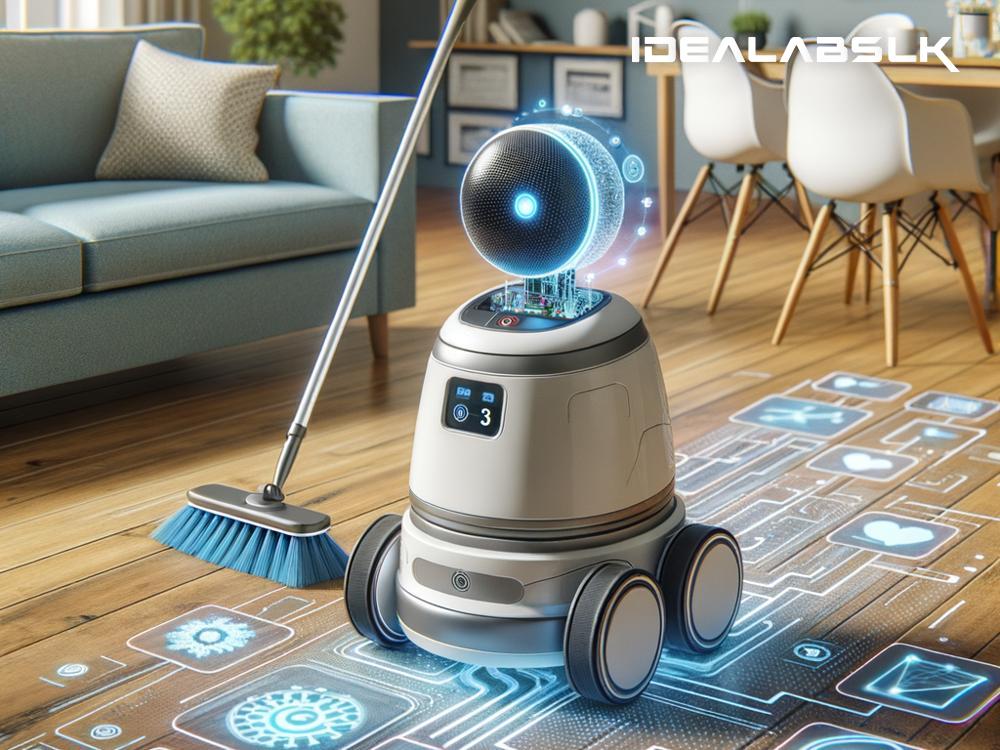How AI Powers Autonomous Operations in Smart Cleaning Robots
In the bustling world we live in today, maintaining a clean and hygienic environment is crucial, yet it's often hard to find the time for it. Imagine having a little helper that takes care of the cleaning without needing constant instructions or supervision. Enter smart cleaning robots – your personal cleaning assistants powered by Artificial Intelligence (AI). These aren't the clunky vacuum cleaners of the past; they're advanced gadgets that can navigate your home, avoid obstacles, and ensure every corner is spotless, all by themselves. Let's dive into how AI is the brain behind these autonomous cleaning marvels.
Understanding AI in Smart Cleaning Robots
At its core, AI involves creating algorithms and programming that allow machines to perform tasks that typically require human intelligence. These tasks include learning from experience, recognizing patterns, and making decisions. In smart cleaning robots, AI is the secret sauce that enables them to operate autonomously, adapting to different environments and challenges.
How AI Works in Smart Cleaning Robots
-
Navigation and Mapping: One of the standout features of smart cleaning robots is their ability to move around a space without bumping into things. Using AI, these robots can map out your home and plan the most efficient cleaning paths. They use sensors and cameras to detect obstacles, stairs, and even pets, ensuring they clean thoroughly without causing chaos.
-
Learning and Adapting: AI allows smart cleaning robots to learn from their surroundings and their cleaning performance. If a robot finds that a particular area gets dirtier more quickly, it can adjust its cleaning schedule for that area. Over time, it learns the layout of your home, where furniture is located, and which areas require extra attention, optimizing its cleaning routine without any input from you.
-
Dirt Detection and Cleaning Decisions: Ever noticed how some areas in your home get dirtier than others? Smart cleaning robots use AI to detect varying levels of dirt and adjust their cleaning accordingly. They might increase suction power on a dusty rug or spend more time scrubbing a stained floor. This ability to assess and adapt makes them incredibly efficient cleaners.
-
Self-Maintenance: AI doesn't just help with cleaning; it also ensures the robot keeps itself in top condition. The robot can monitor its battery life, returning to its charging dock when needed. It can also alert you if there's an issue, like when the dustbin is full or if it gets stuck somewhere.
-
Integration with Smart Home Systems: Many smart cleaning robots can now communicate with other smart devices in your home through AI. This means you can control your robot through voice commands or set it to automatically start cleaning when you leave the house. As these robots become more integrated into our smart homes, managing them becomes even more seamless.
The Benefits of AI-Powered Smart Cleaning Robots
The integration of AI into cleaning robots offers numerous benefits:
- Efficiency: AI enables these robots to clean more thoroughly in less time, saving energy and resources.
- Customization: The ability to learn and adapt to your home's layout and cleanliness levels means a personalized cleaning experience.
- Convenience: With AI, these robots require minimal human intervention, freeing up your time for other important tasks.
- Smart Scheduling: You can set cleaning schedules that fit your life, ensuring you always come back to a clean home.
Looking Ahead
The future of smart cleaning robots powered by AI looks promising. As AI technology advances, we can expect these robots to become even more intelligent, more efficient, and more integrated into our smart homes. They might be able to communicate with other appliances, predicting the best times to clean based on your habits, or even work in teams for faster cleaning.
Conclusion
AI-powered smart cleaning robots represent a leap forward in making our lives more comfortable and our homes cleaner. By harnessing the power of AI, these robots can navigate and adapt to our living spaces, making intelligent decisions to ensure they clean effectively and efficiently. As we move forward, the role of AI in automating and improving household tasks like cleaning will only grow, showing us a glimpse of the smart, connected homes of the future. So, next time you see a cleaning robot quietly making its way around your home, remember: there's a lot of intelligent thinking behind that quiet whirr.

